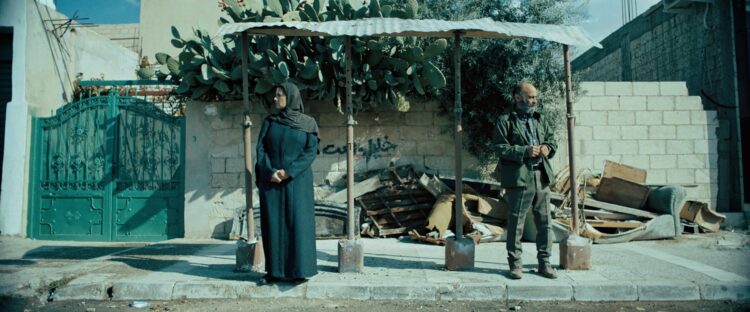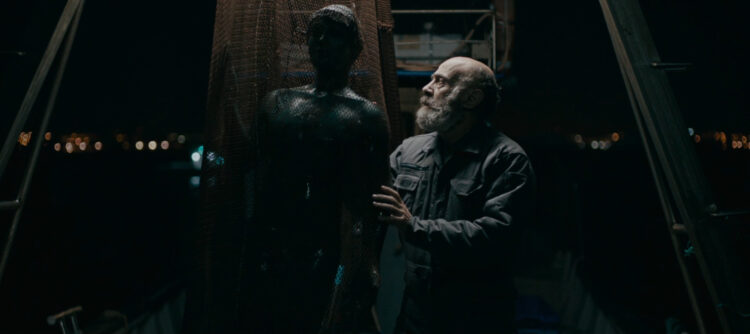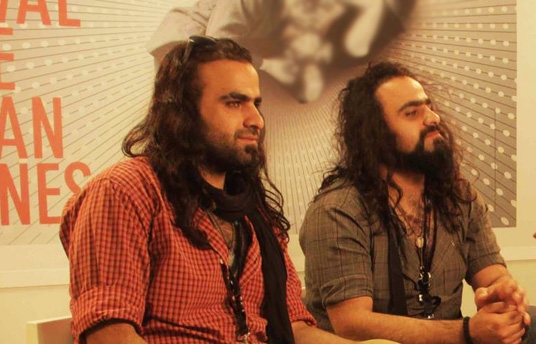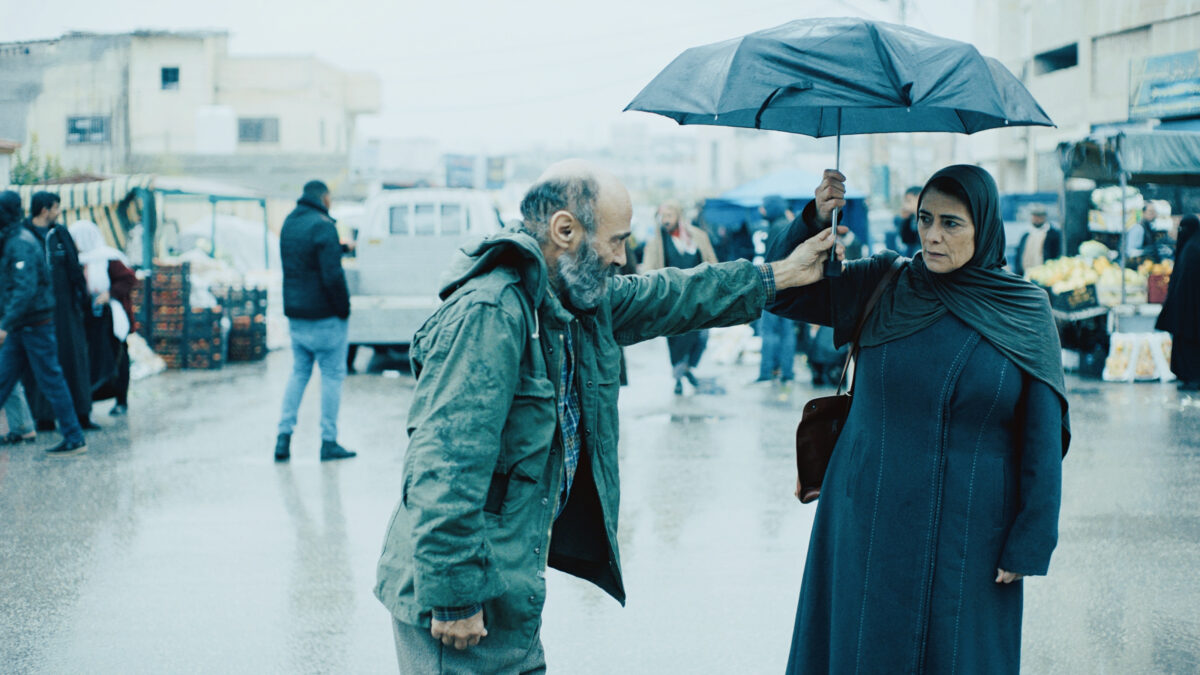The Gaza Strip, a densely-populated and impoverished enclave ruled by Hamas and blockaded by Israel and Egypt, evokes a sense of grimness and desperation. To outsiders, the everyday lives of its inhabitants are a blank, except when they’re filmed sorting through the ruins of buildings bombed by the Israeli Air Force after yet another cross-border war between Israel and Hamas.
In Gaza Mon Amour, an endearing feature film by the brothers Tarzan and Arab Nasser, the ordinary, long-suffering people of Gaza are in the forefront.
Now available on VOD platforms, this is not a political film in service of the Palestinian cause, though snippets of the Arab-Israeli conflict peek through here and there. It’s an understated romance, a tender love story, that transcends the unsettling shrillness of politics.
The central characters are Issa (Salim Dau), an impassive 60 year–old unmarried fisherman eking out a living, and Siham (Hiam Abbas), a solemn seamstress and widow in her fifties. Issa sets out at night in his boat to haul in a decent number of fish. By day, he sells his catch at bargain basement prices. Siham and her divorced daughter, Leila (Maisa Abd Elhadi), work in a clothing shop in Gaza’s central market.
Through the Nassers’ lens, Gaza appears bleak, underdeveloped and uninviting. “When will this shitty life be over?” Issa muses as he chats with a friend. “Can’t wait to leave this place,” the friend says.
One day, Issa tells his sister (Manal Awad) he’s ready to get married. He does not bother explaining his abrupt decision, but the following day, he meets Siham at a bus stop and accompanies her to the market. Too shy to engage her in a conversation, he asks whether she can mend his trousers.

Out at sea again, Issa, much to his astonishment, scoops up an ancient Greek statue of Apollo with an erection. He takes it home, but as he maneuvers it into a corner, its bronze penis snaps off.

Meanwhile, Siham’s boss delivers bad news. Sales are drastically down and he is decreasing her salary. It’s a commentary on the catastrophic economic situation in Gaza today. So is the passing reference to Gaza’s regular power cuts.
When Issa’s sister introduces him to five marital prospects, he shows no interest in the women. He has his eye on Siham.
The police come calling after Issa tries selling the broken-off antique penis to a jeweller. In short order, the cops confiscate the statue and detain Issa. The powers wielded by the police seem arbitrary. The police chief is amused when Issa confesses he had a wet dream in his cell.
The Nassers slyly slip in political content.
As Issa sits in the chief’s office, he hears a television announcement concerning Hamas’ intention to create an independent state in “all” of Palestine — Israel, the West Bank and Gaza. Shortly afterward, the thunderous roar of a jet, followed by a bright fireball, pierces the sky. Israel has launched yet another air raid in Gaza.
Amid these blips, Issa brings in his pants to be shortened by Siham, while a wheeler-dealer in a fancy office conspires to sell the statue for a handsome profit. Corruption seems to be a way of life here.
In another observation, as filtered through a report on a television set, the Nassers lambaste local politicians for having failed to devise a development plan for Gaza. Its “starving” residents are being “manipulated” by Arab states, Turkey and the United States. Israel goes unmentioned.
Issa, bent on marrying Siham, rehearses his marriage proposal in front of a mirror. As this brief scene dissolves, martial music blares as the camera pans on a rocket attached to a crane. “This is what they deserve, the sons of bitches,” says Issa’s friend in an implicit reference to Hamas bombardments of Israel.
Issa remains silent in the face of this verbal barrage, being focused on proposing marriage to Siham. His actual proposal is a cinematic masterpiece.
The film works well not only because the Nasser brothers are true craftsmen, but because their cast, led by Dau and Abbas, is nothing less than superb. There is an abundance of talent in the Palestinian community, and Gaza Mon Amour is proof of that.

